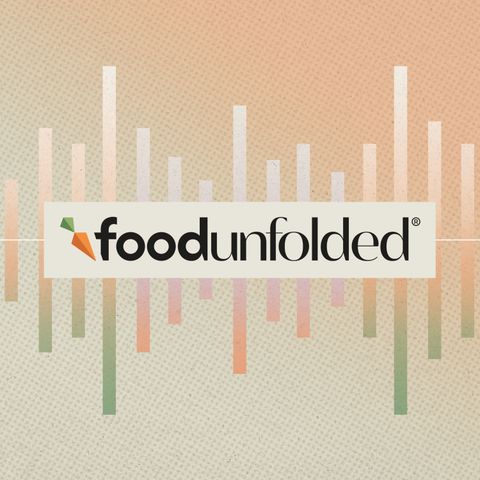How Sustainable Is Organic Farming? | Strength2Food Mini-Series
Aug 18, 2021 ·
47m 8s

Download and listen anywhere
Download your favorite episodes and enjoy them, wherever you are! Sign up or log in now to access offline listening.
Description
In this Strength2Food special mini-series episode, we explore: Is organic farming more sustainable than conventional farming? What are the broader social benefits of organic farming? What challenges do we still...
show more
In this Strength2Food special mini-series episode, we explore:
Is organic farming more sustainable than conventional farming? What are the broader social benefits of organic farming? What challenges do we still need to overcome to make organic production sustainable for all actors in the supply chain? Dr Burkhard Shaer, co-founder of ECOZEPT, elaborates on all this and more with insights from intensive case studies and evaluations under the Strength2Food project.
*Strength2Food is a 5-year EU-funded project that aims to improve the effectiveness of EU food quality schemes (FQS), public sector food procurement (PSFP) and to stimulate short food supply chains (SFSC) through research, innovation and demonstration activities. This project has received funding from the European Union’s Horizon 2020 research and innovation program under grant agreement No.678024.
Find S2F at www.strength2food.eu.
Time markers:
0:00 Opening Introduction
0:56 Introduction of Burkhard Shaer
1:35 How is organic defined in the EU?
2:29 Benefits of organic farming
2:47 Broader social benefits of organic farming
3:48 Limitations of organic farming
5:45 Growth of organic production and consumption
7:10 Who typically buys organic products?
8:12 Retailers role in organic
10:29 How can we ensure organic products are truly organic?
12:14 Imported organic produce
14:48 Organic import fraud cases
15:24 Consequences of organic fraud in the EU
16:13 Consumer mistrust in organic food
17:18 How can we reach the EU's target of 25% organic agricultural land?
18:39 Biggest challenges to overcome to reach 25% target
19:54 Economic investment in organic production
20:29 Organic subsidies
21:21 How many farms have converted to organic since 2016?
21:50 Which EU country has the most organic agricultural land?
22:11 Best crops and lands easier to convert to organic
25:07 Sustainability case studies of organic food
26:05 Sustainability of organic pork meat in Germany
28:06 Sustainable factors and indicators
31:00 Sustainability of processed organic tomatoes in Italy
32:07 Social benefits higher in organic production
33:23 What are the most successful modes of organic distribution?
34:42 Diversifying modes of organic distribution
35:13 Resiliency of organic supply chains: natural disasters and excess demand
36:55 Role of organic labelling
38:30 Should organic produce be so expensive?
43:55 Could we feed the entire world only on organic-grown foods?
44:58 Should organic farming be combined with other approaches?
46:26 Concluding Remarks
46:40 Closing
FoodUnfolded is funded by EIT Food, a body of the EU.
show less
Is organic farming more sustainable than conventional farming? What are the broader social benefits of organic farming? What challenges do we still need to overcome to make organic production sustainable for all actors in the supply chain? Dr Burkhard Shaer, co-founder of ECOZEPT, elaborates on all this and more with insights from intensive case studies and evaluations under the Strength2Food project.
*Strength2Food is a 5-year EU-funded project that aims to improve the effectiveness of EU food quality schemes (FQS), public sector food procurement (PSFP) and to stimulate short food supply chains (SFSC) through research, innovation and demonstration activities. This project has received funding from the European Union’s Horizon 2020 research and innovation program under grant agreement No.678024.
Find S2F at www.strength2food.eu.
Time markers:
0:00 Opening Introduction
0:56 Introduction of Burkhard Shaer
1:35 How is organic defined in the EU?
2:29 Benefits of organic farming
2:47 Broader social benefits of organic farming
3:48 Limitations of organic farming
5:45 Growth of organic production and consumption
7:10 Who typically buys organic products?
8:12 Retailers role in organic
10:29 How can we ensure organic products are truly organic?
12:14 Imported organic produce
14:48 Organic import fraud cases
15:24 Consequences of organic fraud in the EU
16:13 Consumer mistrust in organic food
17:18 How can we reach the EU's target of 25% organic agricultural land?
18:39 Biggest challenges to overcome to reach 25% target
19:54 Economic investment in organic production
20:29 Organic subsidies
21:21 How many farms have converted to organic since 2016?
21:50 Which EU country has the most organic agricultural land?
22:11 Best crops and lands easier to convert to organic
25:07 Sustainability case studies of organic food
26:05 Sustainability of organic pork meat in Germany
28:06 Sustainable factors and indicators
31:00 Sustainability of processed organic tomatoes in Italy
32:07 Social benefits higher in organic production
33:23 What are the most successful modes of organic distribution?
34:42 Diversifying modes of organic distribution
35:13 Resiliency of organic supply chains: natural disasters and excess demand
36:55 Role of organic labelling
38:30 Should organic produce be so expensive?
43:55 Could we feed the entire world only on organic-grown foods?
44:58 Should organic farming be combined with other approaches?
46:26 Concluding Remarks
46:40 Closing
FoodUnfolded is funded by EIT Food, a body of the EU.
Information
| Author | FoodUnfolded |
| Organization | FoodUnfolded |
| Website | - |
| Tags |
Copyright 2024 - Spreaker Inc. an iHeartMedia Company
